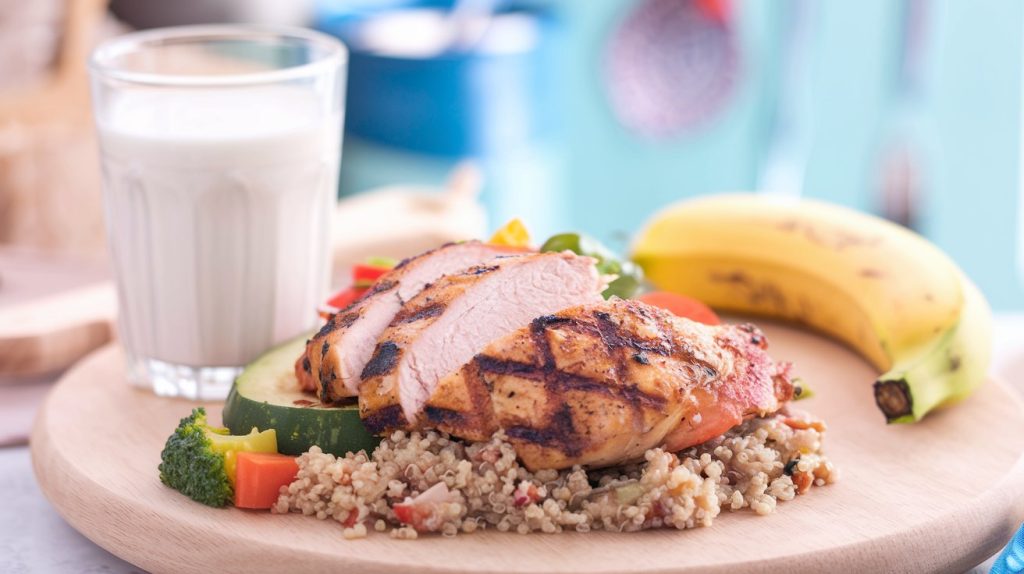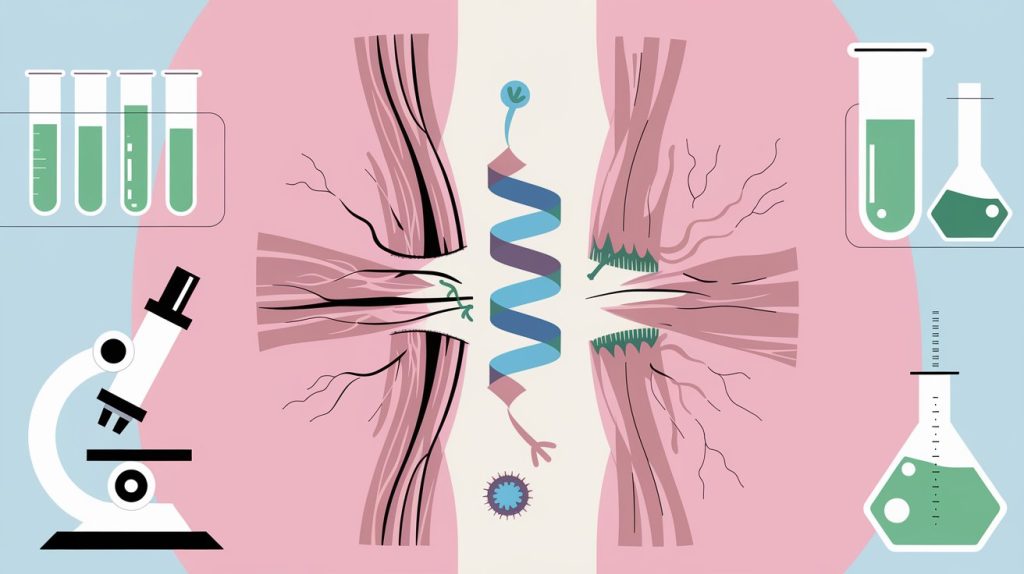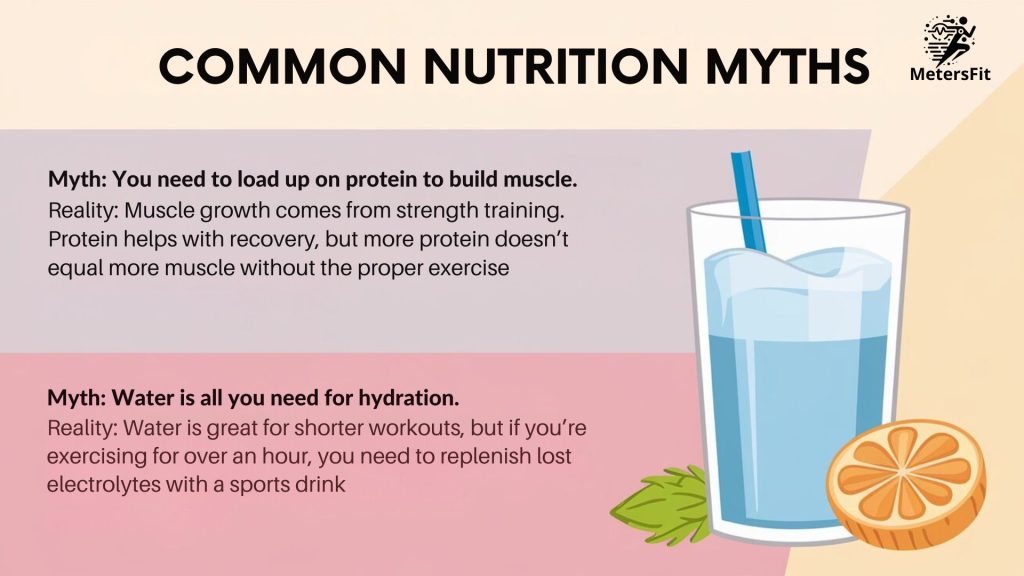The Power of Nutrition in Fitness
If you’ve ever wondered why some workouts feel like you’re on top of the world while others leave you drained, chances are it has more to do with your diet than you think. Nutrition plays a critical role in your energy levels, recovery, and overall athletic performance. Whether you’re training for a marathon, hitting the gym regularly, or just staying active, understanding how to properly fuel your body can make all the difference.
As a fitness expert, I’ve seen firsthand how the right balance of nutrition can enhance workouts and improve recovery times. Let’s dive into the essential nutrients you need and practical tips on how to fuel your workouts for success.

Key Nutrients for Athletic Performance
In any discussion about the role nutrition in fitness, three key nutrients take center stage: carbohydrates, protein, and fluids. Each of these plays a vital role in keeping your body fueled, so let’s explore their individual benefits and how to use them to maximize your performance.
1. Carbohydrates: Your Body’s Primary Fuel
When it comes to energy, carbohydrates are king. Your body relies on glycogen (stored carbs in your muscles and liver) to power your workouts. If your glycogen stores are depleted, you’ll likely hit the wall—fatigued, underperforming, and struggling to keep up.
Complex Carbs:
Whole grains, pasta, rice, and bread are excellent sources of long-lasting energy. They also provide fiber and essential nutrients, helping your body stay strong throughout the day.
Simple Carbs:
Sugary snacks like candy or soft drinks provide a quick burst of energy, but it’s short-lived. Focus on getting your carbs from nutrient-rich sources that sustain your energy for longer.
Pre-workout Fuel:
About 1-3 hours before exercising, eat a carb-rich snack to keep your energy levels steady. A banana with peanut butter or a cup of yogurt can be a simple but effective option.
During Your Workout:
If your workout is intense and lasts over an hour, refuel with a quick snack. Sports drinks, pretzels, or low-fat granola can give you that extra push. Sip on a sports drink every 15-20 minutes to maintain your energy levels.
Post-workout Recovery:
After a tough workout, replenishing your glycogen stores is crucial. Pair carbs with a bit of protein to kickstart muscle recovery. A smoothie, trail mix, or a sports bar are great post-workout options.
2. Protein: Building and Repairing Muscles
Protein is essential for muscle repair and growth. But let’s clear something up: while protein helps with recovery, it won’t magically build muscles without exercise. The key is to strike a balance. Most athletes already get enough protein from their diet, but knowing when and how to consume it makes all the difference.

How Much Do You Need Protein?
If you’re strength training, you may need a bit more protein, but overloading isn’t necessary. Chicken, fish, eggs, beans, and dairy are excellent sources. Supplements can help, but they aren’t a must.
Post-workout Protein:
Pairing protein with carbohydrates after a workout aids in muscle repair. Some great post-workout choices include yogurt with granola or a turkey sandwich. Remember, carbs are just as important!
Too Much Protein?
Overdoing it on protein can actually hinder your performance. Excess protein can:
- Be stored as body fat.
- Increase dehydration risk.
- Put stress on your kidneys.
Make sure to balance your protein intake with carbs and hydration for the best results.
3. Hydration: Keep the Fluids Flowing
When we talk about essential nutrients, water often gets overlooked. Staying hydrated is critical for keeping your muscles and joints working efficiently, maintaining energy, and avoiding heat-related issues. Your body can lose several liters of sweat in just an hour of intense exercise, so hydration is key.
Pre-workout Hydration:
Drink about 16 ounces of water two hours before exercising. This ensures your body is fully hydrated when you start.
During Your Workout:
Sipping water regularly throughout your workout is important. For exercises lasting over an hour, you’ll want to switch to a sports drink to replace lost electrolytes. Aim for ½ to 1 cup of fluid every 15-20 minutes.
Post-workout Hydration:
After exercise, rehydrating is essential. For every pound of weight lost during a workout, drink 16-24 ounces of fluid. Clear urine is a good sign you’re properly rehydrated.
Hydration for Young Athletes:
Teens and children often don’t respond to thirst as well as adults. Encourage them to drink regularly, especially during sports.
Practical Nutrition Tips for Athletes
Your nutritional needs will depend on the type of sport, intensity, and duration of your training. Here’s how you can tailor your diet for optimal performance:
- Endurance Athletes: Carbs are your best friend. Fuel up before, during, and after long workouts to prevent burnout and ensure quick recovery.
- Strength Athletes: Focus on balanced meals that include both carbs and protein. The carbs will give you energy for those heavy lifts, while the protein will help with muscle recovery.
- Pre- and Post-workout Snacks: Keep it simple with snacks like peanut butter sandwiches or smoothies. Post-workout, opt for something that combines protein and carbs to aid recovery.
Common Nutrition Myths

Myth #1: You need to load up on protein to build muscle.
Reality: Muscle growth comes from strength training. Protein helps with recovery, but more protein doesn’t equal more muscle without the proper exercise.
Myth #2: Water is all you need for hydration.
Reality: Water is great for shorter workouts, but if you’re exercising for over an hour, you need to replenish lost electrolytes with a sports drink.
Safe Weight Management for Athletes
Managing weight for competitive sports can be tricky. Extreme weight loss or gain can have negative effects on performance and health. Always aim for gradual, healthy weight changes, and consult a registered dietitian to guide you through the process.
Avoid rapid weight loss: Losing weight too fast can cause muscle loss and reduced performance.
Set realistic goals: Whether gaining or losing weight, aim for healthy, sustainable progress that won’t harm your performance.
Conclusion
At the end of the day, nutrition is the foundation of any good fitness routine. Whether you’re aiming to build muscle, improve endurance, or simply stay fit, fueling your body with the right balance of carbohydrates, protein, and fluids is key to achieving your goals. So next time you hit the gym or the track, remember that what you eat is just as important as how you train.
Call to Action:
Ready to see how nutrition can boost your performance? Start incorporating these nutrition tips into your routine today and notice the difference in your energy, recovery, and overall fitness. Let’s fuel up and get moving!






